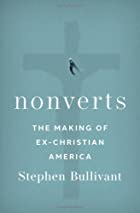If anything, the Oppenheimer movie has increased interest in all things World War II, already a focus of so much attention and the topic of so many books. This summer, I have read Sean McKeekin’s thought-provoking Stalin’s War: A New History of World War II (NY: Basic Books, 2021). The « new » in the subtitle refers not just to its being yet another massive (666 pages of text plus another 100 or so of notes) study of the war, but to the way it untypically centers its narrative on Stalin and the Soviet Union rather than on Hitler and Germany or on the Western Allies (U.S. and U.K.). It challenges the preferred Western narrative that focuses on the Allies « Good War » against Hitler and the Nazis, with a resulting happy ending for the U.S. and Western Europe at the war’s end. In contrast, as is well known, not only did a disproportionate amount of fighting and dying happen on the eastern front, but there was no real happy ending in the east. « For subjects of his expanding slave empire, Stalin’s war did not end in 1945. Decades of oppression and new forms of terror were still to come, » concludes McKeekin on the last page of this book.
That Stalin emerged as the big winner from World War II there can be no real doubt, despite the terrible losses the Soviet Union suffered, especially between June 1941 and June 1944 when Soviet soldiers (and civilians), admittedly aided and provisioned by the U.S. and Britain, served as cannon fodder in place of Western soldiers. And the Soviet Union emerged from that war with significant gains in Asia as well, where it had not been engaged against Japan until the end (and where, in fact, Stalin in his neutrality had effectively been an aid to Japan against the U.S. and Britain). Obviously, the U.S. also won the war. Indeed, the U.S. emerged from the war almost unscathed and immeasurably enriched and empowered, unlike Britain which was nominally victorious but effectively diminished. The U.S. clearly emerged as the war’s principal victor and the dominant and most powerful country in the world. And, just as clearly, it remains difficult still today to imagine any alternative scenario in which the Soviet Union would not have emerged as it did, as the only other serious, post-war Great Power.
What is especially interesting about McKeekin’s work is how he forces the reader to approach the war from Stalin’s perspective. From the beginning, Stalin got a lot of what he wanted. The war itself was something Stalin probably wanted more than Hitler. He had hoped for a catastrophic conflict between Germany, on the one side, and Britain and France, on the other, each imperialist capitalist country diminishing the other. Instead, however, he got a relatively quick German victory, which was inevitably a threat to the Soviet Union. As for Poland, which had always been a threat to Russia and had been until recently a quasi-ally of Germany, the infamous 1939 pact between the two dictators had been as much Stalin’s initiative as Hitler’s and had originally served Stalin’s interests even more than Hitler’s. Stalin took more of Poland than Hitler did, while waiting to enter the war until Hitler had effectively defeated Poland, thus enabling Stalin to preserve Russia’s « neutral » status. Hitler remained very dependent on Stalin for materials. Meanwhile, Stalin was able to expand his empire into the Baltics. His only mistake was in Finland, an adventure which almost (but didn’t) provoke a war with the West.
The author treats all of this in great detail, together with Stalin’s most notorious war crimes (e.g., Katyn). He is somewhat guarded in his appreciation FDR’s wartime policy toward Stalin (as Churchill himself eventually became), and is particularly dubious about Harry Hopkins and some of FDR’s other interlocutors with Stalin. FDR was also more generous to Stalin than to Churchill, who was effectively forced to mortgage the British Empire to the U.S. FDR’s politically and morally dubious policy of « unconditional surrender » (which was his idea not Churchill’s) was intended to assure Stalin of Western seriousness, a pledge that the West would not negotiate a separate peace with Germany. (Meanwhile Stalin himself made overtures for a separate peace with Hitler!) Personally, I have long doubted the desirability of the « unconditional surrender » policy. Politically, of course, Truman could hardly have reversed FDR so soon even had he wanted to. Had he been able to do so, however, perhaps the Soviet involvement in the Pacific Theater could have been avoided.
One can imagine how different decisions on this or that matter might have made some marginal difference in the final outcome. On the other hand, as always when engaging in revisionist history or any sort, the question remains what was the alternative? What outcome could there have been instead?
The U.S was extremely generous in its aid to the Soviet Union. Had we not been so generous, however, would the Society Union have been able to win the war on the ground for us in Europe as it finally did? Yes, FDR should have pressed Stalin to start a second front against Japan – just as Stalin constantly pressure the allies to do so in Europe. In the end, however, that might well have given Stalin even more leverage in Asia than he got. And, on the traditionally most controverted outcomes (e.g., Poland), it is hard to imagine the map of Europe turning out that much differently.
But maybe the point is not so much to imagine an alternative outcome as to recover a more accurate picture of the past. It is helpful to re-travel this familiar territory with a focus on what Stalin wanted and what Stalin got, instead of the more usual emphasis on FDR’s and Churchill’s response to Hitler – as if they alone were the primary actors and Hitler alone the primary villain.






